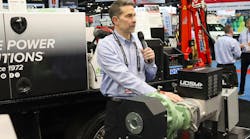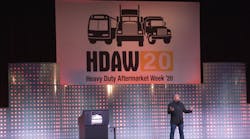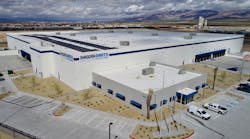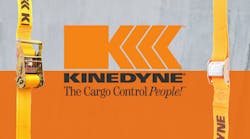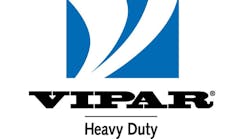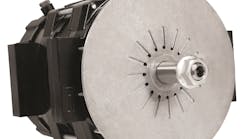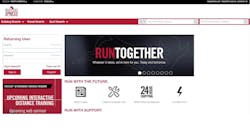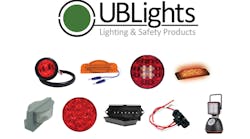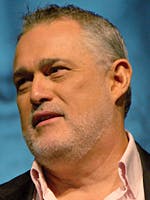The way Jeffrey Hayzlett sees it, Eastman Kodak Company didn’t go bankrupt five years ago. It actually happened in 1975, when a 24-year-old Kodak engineer named Steve Sasson made the world’s first digital camera by combining a used Super-8 movie camera, a portable digital cassette recorder, 16 nickel cadmium batteries, an analog/digital converter, and several dozen circuits wired together on six circuit boards.
Sasson told Kodak executives, “Think of it as an HP calculator with a lens.”
They weren’t impressed.
Kodak executives couldn’t envision a world without traditional film—until it was too late.
In his presentation, “How Companies Reinvent Themselves to Keep Up With Their Customers,” Hayzlett said successful executives have to drive change.
“I know the business you think you are in, and I want to challenge that,” he said. “Think big, act bigger. Adapt change or die—no matter how great it has been, how much we would like it to be the way it used to be. It’s about driving change, to be relentless. It’s not the lucky who win. It’s the relentless.
“I’m not talking about driving change for change’s sake. We have to do them even faster because that’s the way the world is today. It’s not the way it used to be. I would like to look the way I was when I was 20.”
Hayzlett is a primetime television host of “C-Suite with Jeffrey Hayzlett” and “Executive Perspectives” on C-Suite TV, and business podcast host of “All Business with Jeffrey Hayzlett” on CBS on-demand radio network Play. He is a global business celebrity, speaker, and chairman of C-Suite Network. He also has found time to author two bestselling business books, The Mirror Test and Running the Gauntlet, along with Think Big, Act Bigger: The Rewards of Being Relentless.
Testing the team
In 2006, he was hired by Kodak as chief marketing officer. He decided to “test the mettle” of his marketing team by creating tension.
“I think it’s a good thing,” he said. “I started calling meetings of the team to test the mettle of the team and see how good they were at change. I’d show up early at a meeting. There’d be a clock on the wall. I’d get on the chair and move the clock ahead by 15 or 20 minutes. I wanted to mess with them. People would walk into the meeting and give me their plans for the year. So they walk in and look at the clock and then look at their watch and say, ‘Well, what time do you have?’ And then they would say that the clock was wrong and that they can’t work like that. They’d say, ‘Did you know that in Building 104 on the 11th floor, there’s a clock that’s out?’
“Pretty soon, they were forming committees to organize how they’d call somebody who knew somebody in maintenance who would fix the clocks. Literally for two weeks this went on. People would walk in the same room, look at the clock, look at their watch, give me an update on the task force that had been formed to change the clock. Finally I just said, ‘Why doesn’t somebody just do something?’ A woman got up and walked over to the clock with a chair, hiked up her dress, stood on the chair, and she changed the clock. I named her my chief of staff the very next day. And she’s running a billion-dollar company today. That’s what we have to be—clock changers. No bitching, no moaning, no complaining, no task force. Change it. We see it’s wrong. Change it. We have to learn to be these leaders.
Expecting to fail
“You’re going to fail. Let’s be very clear: You are going to make mistakes. You are going to screw up. You will fail. We all fail. It’s in the nature of what we do. But that’s not the end goal—to fail fast. It’s to win fast. Somebody once asked Thomas Edison, ‘You failed 10,000 times to make a light bulb.’ He said, ‘No, I didn’t. I just made it better 10,000 times.’ We have to get it into our mindset to win as fast as we can and drive change, and do it and do it and do it.”
Hayzlett has learned a lot from his C-Suite show, which takes viewers into places they normally can’t go. Three years ago, he interviewed San Diego-based Life Technologies around the time it was going to sell to Thermo Fisher for $13.6 billion.
“I went in to see what it was like for a company to sell to another company,” he said. “Many at the top levels are going to lose their jobs, so they will have to go somewhere else. I went to see this CEO speak at a local event—a Harvard MBA group in San Diego. We shoot him talking and me watching him. He’s talking and puts up a slide: ‘Leaders must be irrational.’ When he said that, I went, ‘Whoa, what’s that?’ I thought, ‘How could he be irrational? It’s a publicly traded company about to sell. He’s a Six Sigma expert because he came from GE. He’s bought 48 companies. He’s into a scientific industry. If anything, this guy should be logical. And he’s saying leaders must be irrational.’ So I wrote it down. I told the producer, ‘Get a shot of me writing irrational with an exclamation point, circling it, because I think I’m going to get together with him and drill him on this: ‘How can you say such a thing?’ And then he said, ‘Here’s why you have to be irrational: A lot of times what we have to do as leaders is take people from A to B. We have to tell everybody, ‘We’re going way over here to C just to get to B. We have to be a little bit crazy. We have to tell them to work a little bit harder. We have to tell them to be faster. We have to tell them to cut more. We have to be irrational in order to win.’ ”
Fear not
He said many companies can’t move ahead because they’re consumed by fear.
“Why? Because as human beings we are inherently afraid,” he said. “How many of you are scared of heights? I get a nosebleed if I wear two pairs of socks. But the fear of doing something new, of doing something different, only lasts for a couple of seconds.
“To be a maestro, you have to learn to play a lot of bad notes. If you are going to drive change, you’re going to fail. It’s just part of the deal. And it’s a little scary, but it’s OK. It just lasts for two seconds.”
And tension is OK, too.
“When you leave this room today, I would like you to reprint your business card to say you are not the CEO, the head of sales, the head of this and that, but you are the Chief Tension Officer of your company,” he said. “See, your job should be to take everybody from the center of the stage and move them to the very edge, where it’s a little uncomfortable and a little scary.
“They say in sports, ‘No pain, no gain.’ Then why don’t we have tension in business? There are going to be people in the organization who want to drag you to the middle, where it’s nice and safe. Their job is to make sure you don’t fall off. But as business people, it’s your job to create tension. Not to embarrass people, not to break huge rules, not to break the law, but to cause tension. That’s what great teams do. They cause tension. And they operate with radical transparency. They’re very open.
Ignoring the obvious
“On a great football team, imagine I’m the quarterback and I’m getting sacked because this person is missing their block. We come back to the huddle and no one talks about it. No one says anything. My star player, I’m resenting him because he’s not doing his job. But we don’t talk about it. What’s with that? We know the elephant’s there. You’ve been in meetings before and we’re all seeing this huge elephant in the room. We leave the room and don’t say anything, don’t make eye contact.
“I’d much rather have a team member come back to the huddle and say, ‘Jeff I’m sorry, my bad. I’m not making my sales, not making my quota. The competition is a little tougher than me, faster than me. I need some help.’ And the guy next to me says, ‘No problem. I can help you.’ That’s what great teams do. They operate with radical transparency.”
Tasting like cardboard
Hayzlett cited the example of Domino’s, which created its brand on fast delivery: 30 minutes or less, or the pizza is free. Taste or quality didn’t seem to matter as much as getting the pizza to the customer really fast.
But Domino’s realized it had a problem when people started gathering online and trashing the quality of the pizza. Sales started to drop in 2008 and Domino’s sunk to last among national pizza chains. There were viral images of pizza being delivered on time, but with the cheese and toppings still stuck to the cardboard.
The result? Domino’s got very transparent. Its commercials went like this: We hear you, our pizzas stink, and we promise to improve them. When Domino’s rolled out its new campaign and new recipe, sales skyrocketed, and Domino’s nearly ran out of pepperoni.
Said Hayzlett, “Their new commercials are like, ‘Hey, don’t call us. If you call us, we’re going to hang up on you. We have people on the phone who can’t even speak English, and you want to order a pizza from us? Hey, just use the app and if you screw it up, it’s your fault.’ But what’s the really cool thing about being transparent and telling the truth? It’s brilliant. By moving it to the phone and into the app, they take $1.15 out of the cost of the delivery.”
Can you learn from McDonalds?
Hayzlett said companies get in trouble by breaking promises and the necessary mutual conditions of satisfaction.
“Here’s how it works,” he said. “Many of you have been to the American Embassy—McDonald’s. You shout your order, at the next window you pay your money, and at the next window you get your food. But it doesn’t always work out that way. They come over and say, ‘Sorry, it’s not quite ready. Pull over to this parking spot and we’ll bring this order to you.’ Has that ever happened to you? Yeah, I’ll tell you why: because the clowns lie. This is where we will take a stand. When they come over to you and say, ‘Would you pull over there?’ You say, ‘No, thank you, I’ll wait.’ And then roll your window up.
“Pretty soon the 14-year-old assistant manager is going to come over and knock on your door: ‘Sir, if you don’t pull forward, you going to hold up all these people behind you.’ You go, ‘I don’t mind,’ and roll the window back up. Pretty soon the 16-year-old manager knocks on the window: ‘Is there a problem?’ You go, ‘Yes, there’s a problem? Yes, you made a promise to me—numerous promises—and now you are trying to break those promises. You’re asking me to pull over to parking purgatory, and yet you are not renegotiating the promise. Listen, I got into the ordering line, I ordered. You showed me a digital printout. I pulled up to the next window and paid my money and you gave me exact change back, a receipt, and told me if I pulled up to this window, I get my food.’
More than passion
“Mutual conditions of satisfaction. That’s what we have to be driving. I know you are about what you do. You’re passionate. The people of Kodak were passionate, too. They would say, ‘Jeff, make it like it used to be. Jeff, make us new again.’ And you can’t be new and dress like Elmer Fudd. Doesn’t happen. You have to get down to the essentials of who you are. A brand is nothing but a promise delivered. That’s a brand. What is your brand? I know that you’re passionate about that brand, but it takes more than just passion.
“I am so passionate that you have to drive it. You have to make people feel uncomfortable. Not from a comfortable state but to get something different.”
He said that when he first arrived at Kodak, corporate executives had already changed the company logo, but were still printing the old logo. They told him it was because they didn’t have the money.
“I said, ‘We’re Kodak. We’re an imaging company,’ ” he said. “Kodak had iconic business cards for years. When you first got to the company, they would take your picture and put it on a card. And that would be your business card. That was pretty cool. Except that the average number of years of service for an employee at Kodak was 28 years. So when you got their business card, you would look at them, look at the card, and you wouldn’t even recognize them. I said, ‘Why don’t we retake photos for the cards?’ They said, ‘We can’t afford to retake 150,000 employees’ pictures.’
Yes we can
“Sometimes it takes drastic action on the part of the leadership. So at 5 o’clock when everybody’s leaving, I go down to the IT department with a couple of six-packs of beer. I meet with the IT department and we proceed to delete every JPEG in every computer in the company. I wiped out every photograph there was in the company. I uploaded everybody’s ID pictures. Not only that, I decided, ‘Let’s change the card. Why don’t we let people put their Facebook or twitter handle on it? Why don’t we, on the back of the card, let them put a picture of whatever they like that’s their own personal branding statement?’ So I put on the memo that we are going to retake photographs and you get to put a picture on the back.
“Guess who comes to see me the next day? HR … and legal. They said, ‘Jeff, we can’t let you do this. You can’t let people put whatever picture they want on the back of card. You have no mechanism if they put something inappropriate on the back.’ I said, ‘I hope they do. Liven this place up a bit.’ ”
Now that’s creating tension. ♦
A PERSONAL LOOK AT THE NEW PRESIDENT
Jeffrey Hayzlett has worked with Donald Trump, including a stint where both men served as judges on the television show Celebrity Apprentice. Not surprisingly, the brief question-and-answer session following Hayzlett’s speech focused on America’s new president.
Question: What business changes do you see Donald Trump making in his new administration?
Hayzlett: Fast and furious. He is a friend, and I have had numerous conversations with him during the campaign. I don’t agree with everything he says, but I can tell you this: He will move, whether you like it or not, with great speed. In just his first few days in office, he has issued a lot of executive orders, including the XL Pipeline, which is not very popular in my state. You will see him move at great speed on a wide range of issues.
That is surprising to a lot of people. Because when many people think of Donald Trump, they think he is shallow. He’s not. He spent $189 million during the last 40 days of the campaign on a team of about 190 engineers in Austin, Texas, who churned numbers every day. They spent this money on Facebook ads based on what the data told them.
He had four people authorized to Tweet for him. Don’t think he is the guy up at three in the morning on Twitter. He could be, but during the campaign he had some very smart people—30-year old kids who were looking at that data and asking, “What can we say that will grab headlines the next morning?”
He is one of those people who consume facts and figures. I worked with him and have seen him decide to fire someone. But when presented with enough facts and figures, he will fire someone else instead. Bottom line: He listens to contrary opinions.
Another stereotype: He is horrible to work with. Did you know that a lot of the people who do have been with him for 30 years or more. People don’t work 30 years for a (jerk).
Also, if he is as terrible as many people think, his children should be all screwed up. But they aren’t.They are the most well-adjusted people I have seen in my life.
Question: Should I invest in gold bullion and move to Canada?
Hayzlett:I think we actually are in for some pretty good times. I always invest in gold—it’s not a bad thing to do. But I wouldn’t move to Canada. I would prefer someplace warmer, like Mexico. Maybe I ought to move there before they build the wall. ♦
Heavy Duty Aftermarket Week 2018 will be held January 22-25 at The Mirage in Las Vegas.
